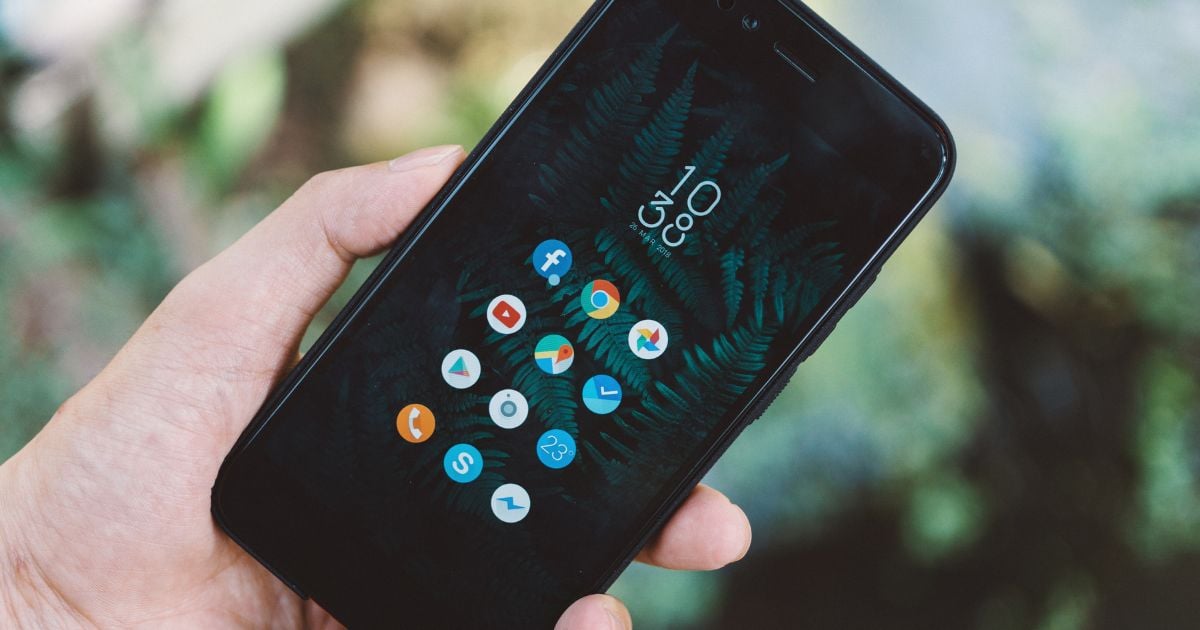Top Android Emulators You Need to Try in 2025

Contents
Want to run Android apps on your PC or Mac? Android emulators make it possible.
Explore top Android emulators for 2025, perfect for developers testing apps and gamers playing on a bigger screen.
Key Takeaways
- Android emulators mimic Android devices on PCs and Macs, aiding developers in testing apps and allowing users to play mobile games on a bigger screen.
- Popular emulators like BlueStacks, NoxPlayer, and Genymotion cater to different needs - from gaming enhancements to robust app testing features.
- Optimal emulator performance requires specific system requirements like CPU virtualization support and adequate memory allocation to avoid common issues.
Understanding Android Emulators
An Android emulator is a software program or virtual machine that runs the Android operating system on non-Android devices like PCs and Macs. It mimics the functionality of real Android devices, allowing users to test apps across different devices and API levels without owning multiple physical devices.
Emulators are incredibly useful for both developers and everyday users. Android developers use them to simulate the hardware and software conditions of various Android devices, facilitating easier testing and debugging across different platforms. Applications can be deployed directly from the Integrated Development Environment (IDE) without installing them on a real Java device, thanks to the built-in emulator in Android Studio.
For everyday users, Android emulators offer possibilities like playing mobile games on a larger screen and accessing mobile apps without needing a high-end Android device to run Android apps on their phones.
A key benefit of Android emulators is their ability to replicate smartphone hardware, providing a realistic experience when running apps on a real Android device. They function as independent virtual Android devices, each with private storage, enhancing their functionality.
Whether you’re a developer, gamer, or just exploring the Android ecosystem on your computer, Android emulators provide a flexible and powerful solution.
Why Use Android Emulators?
Using an Android emulator allows you to run apps and games from the Google Play Store directly on your PC or Mac, providing seamless interaction with mobile applications. You can upload files and drag-and-drop content into the virtual environment, play Android games on a larger screen with better controls, or download apps to use mobile apps without the limitations of a smaller device.
For developers, Android emulators are transformative. They allow testing applications across multiple simulated devices and Android versions without physical devices. This speeds up the testing process and provides valuable data for creating robust and compatible applications. Emulators can simulate various scenarios, such as incoming calls and different network speeds, to ensure thorough testing and optimization.
While emulators replicate many features of real Android devices, they also offer improved data transfer speeds and high-fidelity experiences that closely resemble device usage. Whether developing apps, testing software, or enjoying Android games on a bigger screen, emulators offer a versatile and powerful tool to enhance your experience.
System Requirements for Optimal Performance
To achieve optimal performance from an Android emulator, understanding the system requirements and ensuring your computer meets them is crucial. Emulators perform best when they utilize the machine’s hardware resources, such as the CPU and GPU. VM acceleration is essential here; your processor must support virtualization extensions like Intel VT-x or AMD-V, which can be enabled in BIOS.
A hypervisor facilitates VM acceleration, significantly boosting the emulator’s execution speed. Equally important is graphics acceleration, allowing the emulator to leverage the computer’s GPU for faster rendering and improved performance. Hardware-assisted virtualization enables emulators to achieve performance levels closer to actual devices. Ensuring your system supports these features is key to a smooth and responsive emulator experience.
Specific system images are required depending on your computer’s CPU architecture. For Intel and AMD processors, x86_64 images are needed. Many modern emulators include options for adjusting screen resolution and aspect ratio, enhancing visuals, and ensuring smooth gameplay on Linux.
Meeting these system requirements ensures that your Android emulator works smoothly and provides a high-performance experience.
Setting Up an Android Virtual Device (AVD)
Creating an Android Virtual Device (AVD) is essential for developers testing applications on various simulated devices. To create a new AVD, open the Device Manager and click ‘Create Device’. Each AVD includes components like a hardware profile, system image, and storage settings, to fit specific device specifications.
When selecting a system image, ensure it meets the API level required by your application. AVDs can simulate various devices, including phones, tablets, and wearables, providing flexibility for testing apps across different environments. The storage area in an AVD allows for app installation and saving user settings, making it versatile for development and testing.
Advanced settings for an AVD allow configuration of RAM size, CPU cores, and graphics rendering options, providing further customization to match real Android devices’ performance characteristics. You can also define the emulator’s appearance by selecting or creating custom skins, enhancing simulation realism. Properly setting up an AVD helps developers create a robust testing environment that closely mimics real-world conditions.
Top Android Emulators for 2025
Choosing the right Android emulator is crucial for enjoying the full benefits of Android apps on your PC or Mac. Whether testing applications or gaming on a larger screen, selecting the best emulator makes all the difference.
Here are the top Android emulators for 2025, each offering unique features and capabilities to suit different needs. From BlueStacks’ user-friendly interface to Genymotion’s developer-centric tools, there’s an emulator for everyone.
BlueStacks
BlueStacks, popular among gamers, is known for its user-friendly user interface and focus on gaming. It offers both free and premium versions, with the free version containing occasional ads that can be downloaded.
A standout feature is its integration with Google Play services, allowing access to cloud saves and in-app purchases. BlueStacks also supports keyboard mapping for custom controls and features like cheat codes to enhance the gaming experience.
NoxPlayer
NoxPlayer is another excellent choice for gamers, compatible with both Windows and MacOS. It’s ideal for playing large-scale games like PUBG or Justice League, offering a smooth and responsive experience.
NoxPlayer’s popularity among gamers stems from its robust performance and ease of use, making it one of the best Android emulators available.
Genymotion
Genymotion is designed for developers, offering high performance and a range of tools for application testing and optimization. It can simulate different sensor inputs, GPS coordinates, and battery states, making it ideal for thorough testing.
Genymotion also provides cloud-based Android device testing services, allowing developers to test apps against various configurations without local hardware. Its compatibility with numerous Android versions further enhances its flexibility and usefulness.
LDPlayer
LDPlayer is known for its gaming performance enhancements, including increased FPS and improved graphics quality. Key features include gamepad support, keyboard mapping, and optimization for high-frame-rate gaming.
The multi-instance function allows users to launch multiple instances to play games of games simultaneously, making it a favorite among multitasking gamers and other games that have played a significant role.
MEmu Play
MEmu Play is popular for its strong focus on gaming performance and user-friendly interface. It allows users to run multiple accounts for the same game, enhancing gaming flexibility. The interface is accessible for users of all skill levels, making it a great choice for playing Android games on a PC or Mac.
Advanced Features of Android Emulators
Modern Android emulators come with advanced features that enhance the user experience. Keyboard mapping allows users to customize mouse controls to their preferences, providing a more intuitive gaming experience. Gamepad compatibility, supported by emulators like NoxPlayer, lets users enhance gameplay with external controllers.
Emulators also allow recording gameplay and taking screenshots directly, making it easy to capture and share gaming moments on the emulator screen. To optimize performance, launching the emulator with specific command line flags can address issues related to graphics and compatibility.
Ensuring you have the latest graphics drivers, especially with Intel GPUs, can significantly improve emulator performance. These advanced features make Android emulators a powerful tool for developers and gamers alike.
Troubleshooting Common Issues
Even the best Android emulators can encounter issues. A common problem is related to memory allocation in Windows, which can prevent the emulator from launching. Adjusting system settings to allocate more memory can resolve this issue. Insufficient disk space, requiring at least 5 GB of free space, is another common problem.
Performance issues can arise due to antivirus software monitoring emulator operations. Adding the emulator to a trusted list may alleviate these problems.
Network connectivity issues can sometimes be resolved by specifying Google’s Public DNS servers during launch. Addressing these common issues ensures a smoother and more enjoyable experience with your Android emulator.
Legal Considerations
While using Android emulators is generally legal, the legality of ROMs is more ambiguous and often depends on whether you own the original game. Downloading a ROM for a game you do not own is considered copyright infringement, and sharing ROMs with others is illegal and can result in legal action.
A potential fair use argument exists for downloading ROMs if you own the original game, though this depends on individual circumstances. Ripping a ROM from a game cartridge you own is not definitively different from downloading a ROM from the internet, as both involve creating a copy.
It’s important to be aware of these legal considerations and ensure your use of emulators and ROMs complies with local laws.
Summary
We’ve journeyed through the fascinating world of Android emulators, exploring their functionality, benefits, and setup processes. From understanding what an Android emulator is to diving into the top emulators of 2025, this guide has equipped you with the knowledge to make the most out of these powerful tools. Whether you’re a developer looking to test apps or a gamer seeking a better experience, Android emulators can significantly enhance your computing experience. So, go ahead and explore the options we’ve discussed, and transform your PC or Mac into a versatile Android device!
